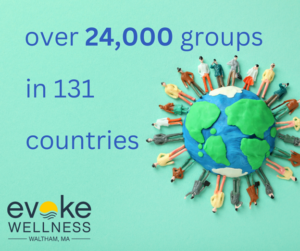Have you ever felt powerless in the face of a loved one’s addiction? You’re not alone. Al-Anon, a support group for friends and family of alcoholics, offers a path forward through its 12-step program. This framework, adapted from Alcoholics Anonymous, provides a roadmap for your own healing and growth. Recent statistics show that Al-Anon has over 24,000 groups worldwide, with over 130,000 members in the US and Canada alone. In this article, you’ll discover:
- The origins of Al-Anon’s 12 steps
- How each step contributes to recovery
- Practical ways to apply these principles in your life
Let’s explore how the 12 steps of Al-Anon can transform your journey toward serenity and acceptance.
Call us at (833) 287-7223 today or reach out online.
What is Al-Anon?
Al-Anon is a mutual support program designed to help friends and family members affected by someone else’s alcoholism or addiction. It provides a supportive community where they can share experiences, find strength, and learn effective coping strategies.
A 12-Step Approach
Al-Anon’s program is adapted from Alcoholics Anonymous (AA) and follows the 12 Steps and 12 Traditions. The only requirement is having a loved one struggling with addiction. At meetings, members realize they are not alone and cannot control the addict’s behavior.
Benefits for Loved Ones
Attending Al-Anon helps end the cycle of codependency and focus on self-care during a friend or family member’s recovery process. It provides tools to build a healthy self-identity separate from codependent relationships through improved communication, boundary setting, and boosting self-esteem.
The 12 Steps of Al-Anon
Al-Anon is a worldwide fellowship with over 24,000 groups in 131 countries, helping families and friends of alcoholics recover from the effects of living with someone’s drinking. The 12 Steps provide a framework for personal growth and healing:
1. Admitting Powerlessness
- We admitted we were powerless over alcohol – that our lives had become unmanageable.
2. Restoring Sanity
- Came to believe that a Power greater than ourselves could restore us to sanity.
3. Turning Over Our Will
- Made a decision to turn our will and our lives over to the care of God as we understood Him.
4. Moral Inventory
- Made a searching and fearless moral inventory of ourselves.
5. Admitting Wrongs
- Admitted to God, to ourselves and to another human being the exact nature of our wrongs.
6. Becoming Ready
- Were entirely ready to have God remove all these defects of character.
7. Humbly Asking
- Humbly asked Him to remove our shortcomings.
8. Making Amends
- Made a list of all persons we had harmed and became willing to make amends to them all.
9. Direct Amends
- Made direct amends to such people wherever possible, except when to do so would injure them or others.
10.Continued Inventory
- Continued to take personal inventory and when we were wrong promptly admitted it.
11. Prayer & Meditation
- Sought through prayer and meditation to improve our conscious contact with God as we understood Him.
12. Spiritual Awakening
- Having had a spiritual awakening as the result of these steps, we tried to carry this message to others.
How to Find a 12 Step Meeting
Local Directories & Listings
- Check community bulletin boards, local newspapers, or contact nearby health and social services offices for listings of upcoming Al-Anon meetings in your area. Many organizations keep directories of active 12-step program schedules and locations.
Online Search Tools
- The official Al-Anon website provides a convenient search tool to find meetings based on your location, day/time preferences, or meeting types like beginners or parents groups. Online forums and support communities can also suggest nearby options.
Ask for Recommendations
- Healthcare providers, therapists specializing in addiction recovery, or others who have been through similar situations can often recommend suitable 12-step programs like Al-Anon meetings taking place locally. The most important step is reaching out for help, as support groups for families affected by alcoholism are available in most communities.
What are the core principles of Al-Anon?
The Three C’s
The core principles of Al-Anon are often summarized as the “Three C’s”:
- You didn’t Cause it
- You can’t Control it
- You can’t Cure it
These remind members that they are not responsible for another person’s alcoholism or addiction. The only thing they can control is how they react to it.
Let Go and Let God
Another key principle is “letting go and letting God” (or a Higher Power). Members learn to have a spiritual awakening and find acceptance by turning over the alcoholic and situation to a power greater than themselves.
This allows them to detach with love and avoid enabling behaviors while focusing on their own recovery.
Keep the Focus on You
Al-Anon emphasizes that the family disease of alcoholism is equally disruptive. Members are encouraged to keep the focus on themselves, rather than trying to change or control the alcoholic’s behavior.
The program provides tools to rebuild self-esteem, set boundaries, and achieve serenity – regardless of whether the alcoholic gets sober.
What is the 12th Tradition of Al-Anon?
The Twelfth Tradition in Al-Anon states: “Anonymity is the spiritual foundation of all our Traditions, ever reminding us to place principles before personalities.” This tradition emphasizes the importance of anonymity in Al-Anon, which helps protect the confidentiality and privacy of members.
The Importance of Anonymity
- Ensures a safe, confidential space for members to share
- Puts the focus on the principles, not individuals
- Allows members to speak freely without fear of repercussions
Practicing the Tradition
Members practice anonymity by avoiding full names at meetings and in publications. This anonymity extends to photos, audio/video recordings and online posts. The spiritual aim is to maintain humility and avoid seeking public recognition or celebrity within Al-Anon.
As of 2021, there were over 24,000 Al-Anon groups worldwide with anonymity as a core tradition. This principle allows the focus to remain on Al-Anon’s primary purpose – helping families and friends of alcoholics.
What is the only requirement for membership in Al-Anon?
A Shared Experience
The only requirement for Al-Anon membership is having a loved one struggling with addiction. This shared experience unites members, fostering understanding and support within a safe, confidential space.
Non-Judgmental Environment
Al-Anon offers a compassionate haven where you can open up without fear of judgment or criticism. Members come from all walks of life, bound by the common goal of healing from addiction’s impacts.
Anonymous Participation
Mirroring the principles of Alcoholics Anonymous, Al-Anon upholds anonymity as a core tenet. This safeguards members’ privacy and encourages vulnerability, facilitating honest sharing.
FAQ: 12 steps of al-anon | addiction
Support System for Loved Ones
Al-Anon is a 12-step mutual support program adapted from Alcoholics Anonymous. It focuses on helping friends and family members affected by someone’s addiction or alcoholism. Attending Al-Anon meetings provides a safe space to discuss struggles, vent frustrations, and work through conflicts as they support their loved one’s recovery process.
Overcoming Codependency
One key benefit is transitioning from codependency to interdependence. Codependency involves an unhealthy reliance on others for self-worth. Al-Anon teaches practical ways to set boundaries, improve communication, and develop balanced relationships that allow for mutual support and personal growth.
The 12 Steps
Working the 12 steps of Al-Anon helps members understand their role in treatment and how to best support sobriety. Members make amends, take personal inventory, and practice spiritual principles focused on acceptance and self-care.
Advantages of Al-Anon
- Understand what their loved one faces in treatment
- End enabling and codependent cycles
- Build a support network facing similar struggles
- Identify detrimental behaviors impacting recovery
- Realize importance of independence for healing
Al-Anon provides invaluable guidance as families navigate the challenges of addiction. Its principles empower members to make positive changes for healthier relationships and lifestyles.
Conclusion
Embracing the 12 Steps of Al-Anon
As you journey through the 12 Steps of Al-Anon, remember that healing is a process. Each step offers valuable tools for your recovery:
- Self-reflection
- Spiritual growth
- Improved relationships
Recent statistics show that Al-Anon continues to make a significant impact:
- Over 24,000 Al-Anon groups worldwide
- 83% of members report improved mental health
- 95% would recommend Al-Anon to others
By working through these steps, you’re not only helping yourself but potentially inspiring others. Your courage in facing addiction’s impact can create ripples of positive change. Remember, you’re never alone on this path – the Al-Anon community is here to support you every step of the way.
Begin Your Journey with Evoke Wellness at Waltham
If you or a loved one is considering outpatient treatment, Evoke Wellness at Waltham invites you to contact us. Our compassionate team is ready to answer your questions, discuss your needs, and help you take the first steps toward recovery. At Evoke Wellness, you will find more than just a treatment program – you’ll discover a community dedicated to your wellness and success. Together, let’s embrace the journey to recovery and the promise of a new beginning. Call us at (833) 287-7223 today or reach out online.



